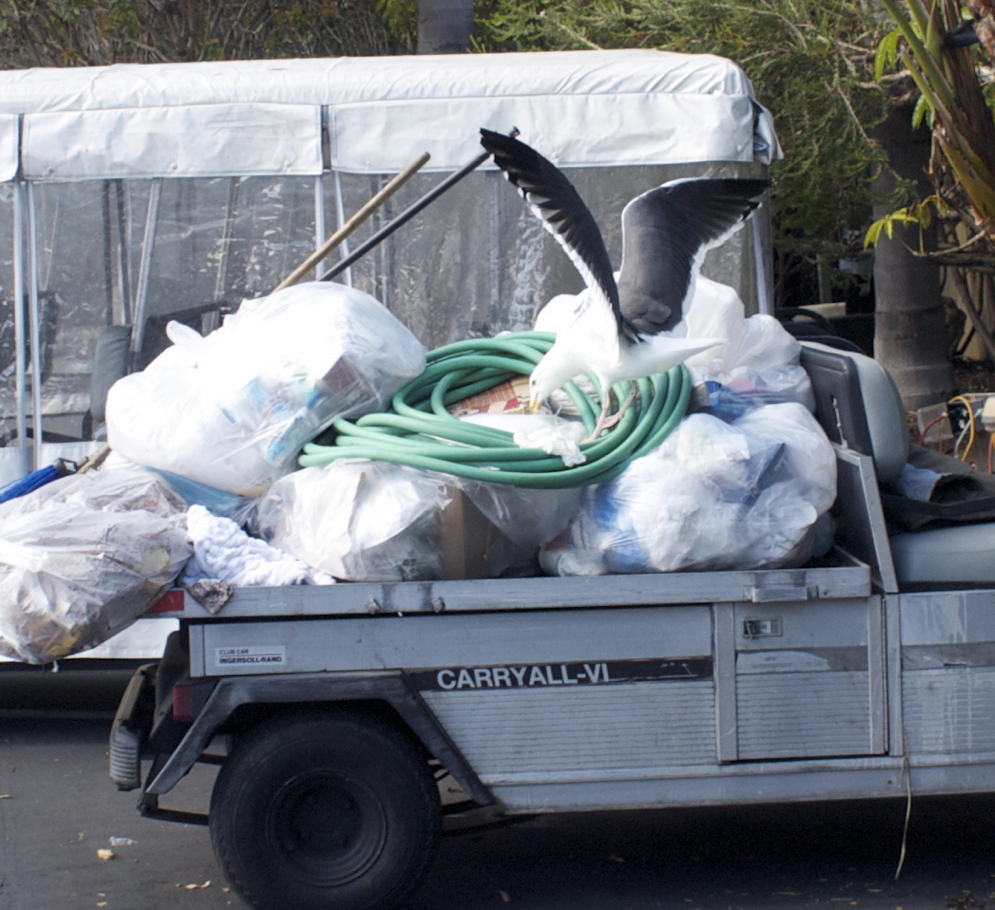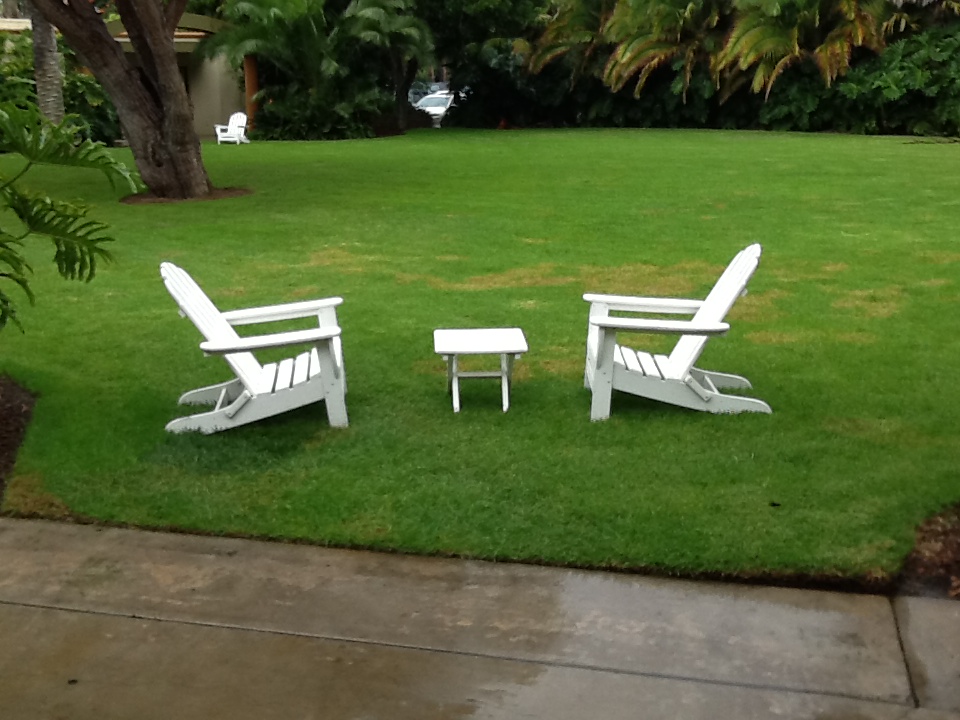La Jolla Writers Conference, 2011
Score one for Apple’s non-removable batteries. I have an awesome Olympus Pen in my bag… and the battery is sitting in the charger back in my apartment. Which means I’m using the lesser camera in my iPad. So I’m not sure you can see the rain in this photograph that’s keeping the lawn free of lounging authors.
The La Jolla Writers Conference is a nice, little, conference with some great faculty. I’m hiding from the rain in room 705 waiting on Mark Clements, king of the late-night read and critiques, but there’s also Mike Sirota whose nuts-and-bolts tutorials are invaluable, and Steven Boyett, whose rambling discussions of literary techniques never fail to inspire. And many more.
I try not to go to too many writers conferences because they take time away from writing. Even though I live in San Diego about a five minute drive from the conference hotel, I only come here every two or three years. On off years I take the time off from work anyway and hole myself up in my apartment writing for the same amount of time I’d be at the conference.
Since this is the only writers conference I’ve been to, I can’t compare it to others, but it’s small, dense, and very useful. If you aren’t here this year I recommend it for next. If you are here this year, write!
- November 9, 2011: La Jolla Writers Conference wrap-up
-

An author at the conference picking at the scraps of the print industry.
A quick wrap-up of interesting remarks and recommendations from this year’s conference:
Mark A. Clements told us that the best lies are the same as the best fiction. To lie well, you need to think about things that you don’t want to think about.
Everything starts with a “What If?” In Pet Sematary•, the question was “What if my child were to die young?” and the question that made it stand out was “What if I could bring him back?”
Some questions are less obvious outside of horror or fantasy, although I’d say that it’s not that you can’t ask a question like that outside of horror/fantasy, but that you have to be willing to look at the question from different angles. On Sunday, Mike Farris used Million Dollar Baby• as an example for his adaptation class, and that’s kind of a non-magical answer to “what if I could bring my child back?”
In something like Pet Sematary, the lies get bigger as the story goes on. Small lies are put in place early to service bigger lies later. Kinda like Shattered Glass. The size of the lie must be commensurate to the size of the question.
A lot of writers told us to write everything in the first draft: don’t limit in the first draft, spew it all out, reminiscent of Stephen King’s advice in On Writing•. Steven Boyett said “Give yourself permission to suck.”
Mark Clements: “You have a responsibility to face your fears on behalf of your characters and your readers.”
When it’s time to cut, Clements asks “Does it carry its own weight? Is it worth the detail?” And this is a question that’s easier to find an answer to after the first draft is done. Sometimes you don’t know if it carries its weight until you see what else it’s holding up.
There was a lot of resonance at this conference, more than I remember happening in previous years. Clements used the kite-flying scene from Pet Sematary to illustrate his example; in Steven R. Boyett’s Craft of Fiction class, the very next class I went to, he used the same scene.
- November 5, 2011: Reading after midnight
-
Nothing keens my writing axe more than knowing I’m about to read it out loud to a bunch of other writers. That one of them is Mark Clements definitely helps. And it is especially true when I’m doing something odd like tDoPB. Which I’m keeping a bit of a secret right now because I’m still not sure I’m going to be able to pull it off.
That’s why I did the temporary podcast of FlameWar. Not too many people listened to it, but those who did mattered. It made me paranoidally aware of every error. I even got some feedback, although that wasn’t the purpose.
Reading with an impending reading in mind makes a huge difference.
Even when the reading is at 2 am. Mark Clements runs a late-night read-and-critique that’s possibly the best read-and-critique I’ve taken part in. The other sessions are all limited by time; this one is not: we go until we have nothing left to say and then Mark wraps it up and we move to the next reading.
A couple of quotes from today’s sessions:
Warren Lewis:
My resume says I lecture frequently. Unfortunately I usually do it at home alone in the bathtub.
An attentive poet does with words what snipers do with bullets… but there’s less paperwork involved.
Raymond Feist:
I love books. I stopped tearing the pages out of books when I was two. I stopped eating them when I was three.
- La Jolla Writers Conference
- “The La Jolla Writers Conference welcomes writers of all levels of experience. This three-day event, now in its 11th year, always boasts exciting, interactive workshops, lectures, and presentations by an outstanding and freely accessible faculty comprised of best-selling authors, editors from major publishing houses, and literary agents, all of whom value meeting and working with a diverse group of creative people passionate about writing.”


